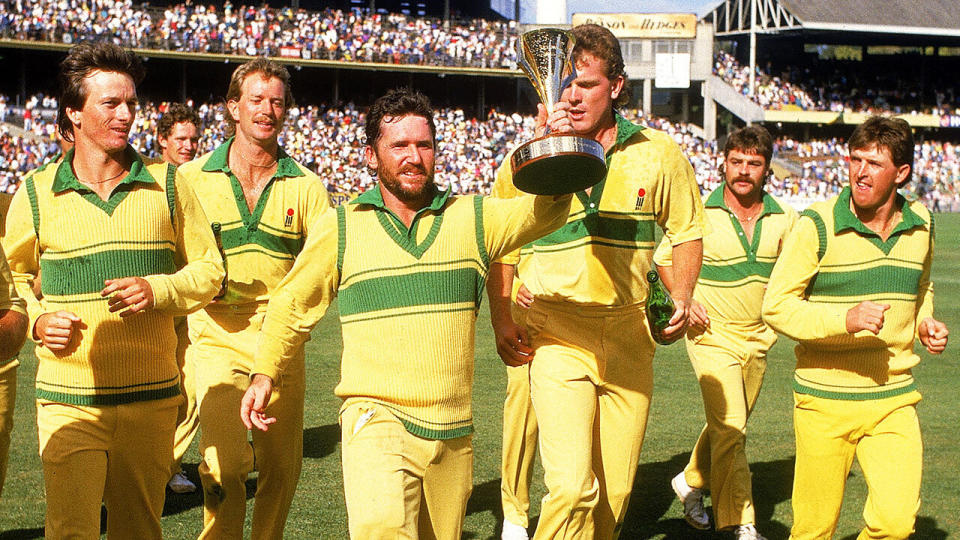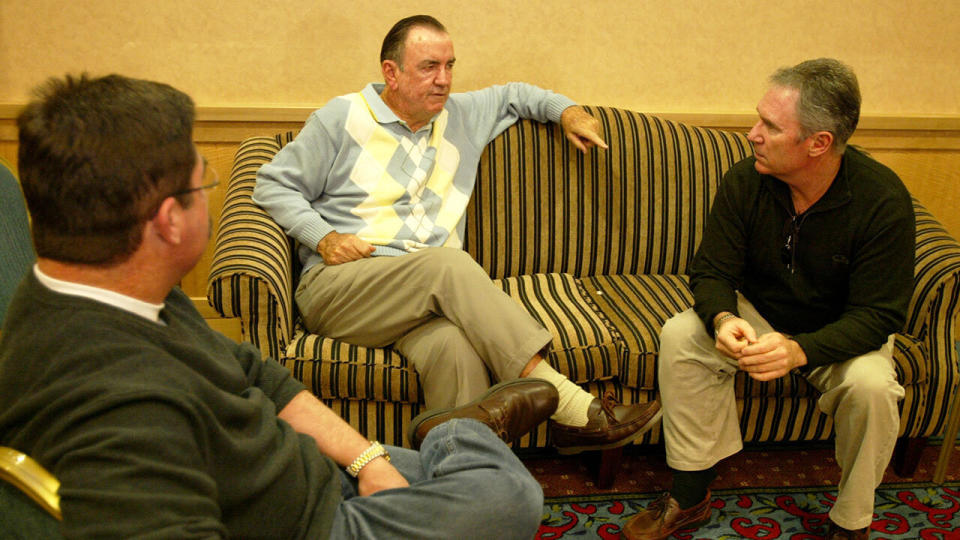The man who transformed ODI cricket for Australia
By Allan Border
I remember when I first played limited-overs cricket, there were no tactics, you didn’t talk about anything in particular, you just went out and played.
Maybe towards the end of the innings, you’d say to your partner, ‘There’s only a few overs left, we’d better have a bit of a slog’. Up until then, it was just a normal cricket game, really.
At the 1979 World Cup, our team was without all its superstars, as it was during World Series Cricket. We struggled in the tournament – but we struggled, in general, with the one-day game.
Even in the ’83 World Cup, we wanted to do well, but I can’t ever remember us sitting down and saying, ‘We’ll try to start off like this, keep wickets in hand for that and when the field goes out, we’ll start knocking it around’, or anything like that. It was just up to players’ individual talent to get us over the line.

For 1987, it was different. It was the first time we tried to get some tactical game plan in place, even if it was still a very simple structure. It was about aiming to keep wickets in hand and aiming to be at a specific point after 15 overs.
Then it was about knocking it around in the middle overs and having a bit of a flurry towards the end. There was also thought put into the bowling, especially who would bowl when. And we put a bit more consideration into whether we wanted to bat or bowl first.
Our coach Bob Simpson was the catalyst for that change. Bob’s not everyone’s cup of tea, but he was very good for our team at that stage, particularly when he first came into the role.
We were a young group and we’d lost our way. But Bob had a really strong work ethic with things like the fielding drills and, overall, the disciplines of practice. He was sensational. He was definitely a factor in why we did well in ’87.

Bob was very adamant about getting everyone on the same page, as far as attitude was concerned. He’d sometimes say, ‘Up to midnight is your time. After midnight is cricket’s time’. Without having actual curfews, he’d lay down the law.
If you’d been out late you really copped it at training. It wasn’t a verbal thing, it was more that he’d hammer you with fielding drills until you fell over half-dead. He just knew if you’d been out late. He was like the Inspector Clouseau of the team.
By the time ’87 came around, we’d had Bob for 12 or 18 months and those disciplines had taken an effect. Everyone had realised that his changes would have a positive effect, everyone was on board, and we started to see that it was making us better. We definitely weren’t as good a cricket team before Bob came along.
